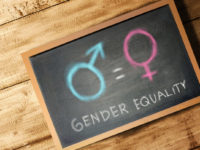A total of 61 per cent of Australian women would consider leaving their job if they find out that their organisation has a gender pay gap, according to new research by HR tech unicorn HiBob.
HiBob’s third annual Women in the Workplace report also reveals a surprising statistic in that 36 per cent of men have expressed a willingness to leave their role for the same reason, an indication of a sense of solidarity and shared concern regarding pay disparities in the workplace.
The finding comes as the Australian government’s Workplace Gender Equality Agency (WGEA) publishes the gender pay gaps of private-sector organisations with more than 100 employees. In relation to this, only fewer women (36 per cent) compared to men (55 per cent) believe that organisations are doing enough to close the gap. A third of women (31 per cent) have gone as far as to say that their organisation will never prioritise closing the pay gap.
“Pay is the foundation of the relationship between employees and employers, and if there’s a gap between genders, nothing damages that relationship more,” Nirit Peled-Muntz, chief people officer at HiBob, said. “I don’t believe [that] organisations deliberately set out to pay one gender more than another, but we do have a problem in Australia, and it’s something organisations need to prioritise fixing. Because not only is pay equality fair, it helps improve profitability.
“Research by McKinsey says that companies with the highest levels of gender and ethnic diversity are 15 per cent and 35 per cent more likely, respectively, to have financial returns above their industry’s average,” Peled-Muntz added.
As for potential ways organisations could solve the gender pay gap, 83 per cent have suggested that organisations should conduct annual pay equality audits, and a further 84 per cent suggest that organisations should conduct performance and promotion audits annually to ensure they’re being done fairly. Meanwhile, 84 per cent of women also say organisations should promote and support diversity in leadership, and 79 per cent say organisations should make diversity a core business value and foster an inclusive culture.
“Fixing the gender pay gap is the big ‘people challenge’ of our time, but an organisation can’t fix it if it doesn’t have the right employee remuneration data easily to hand,” Peled-Muntz said. “Getting that information is key to understanding why a gender pay gap exists within an organisation so you can take steps to rectify it.”
The research also points out that pay is just the tip of the iceberg regarding the challenges facing Australian women in the workplace. Four in ten women believe that men are promoted more often or quicker than women within their company, (compared with 18 per cent of men who think this), indicating a huge disconnect in perceptions between genders. Meanwhile, 26 per cent also shared that a colleague has made them feel uncomfortable or less qualified in the workplace based on their gender.















